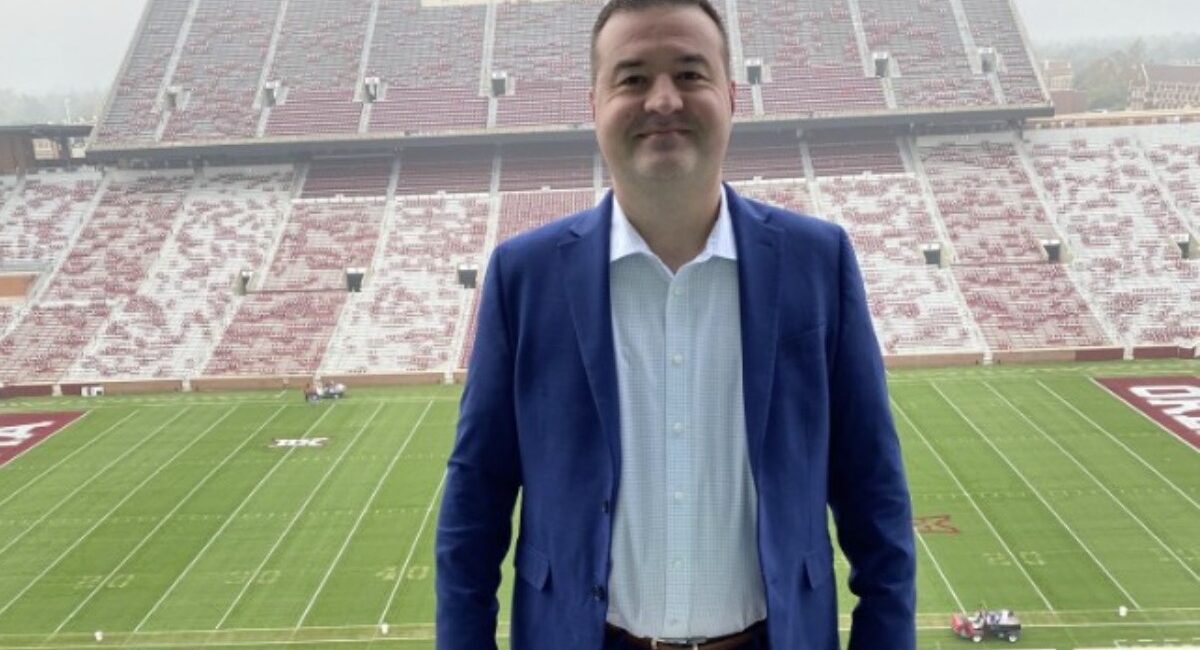Holt joins company after establishing his reputation as a key watchdog of sports betting integrity across the industry.
In a summer dominated by scandal in the sports gambling industry, a sports betting integrity trailblazer has resurfaced in a new position.
Matt Holt, a veteran gambling industry insider, has joined Gaming Compliance International as its new chief executive officer. Holt previously served as CEO of IC360 (formerly known as US Integrity), a prominent sports betting integrity monitoring firm that he founded. At US Integrity, Holt was credited across the industry for work alerting leagues, operators and regulators about suspicious betting activity. He was also formerly chief operating officer of Cantor Gaming.
“Joining GCI was an easy decision,” Holt said in a press release. “GCI’s advanced technology is complemented by an operational and tech team with decades of industry expertise which has the firm well positioned to be the leader in regulated gaming compliance both today and decades into the future.”
Holt encouraged by AI capabilities at GCI
A primary factor in Holt’s decision to join GCI stems from the company’s cutting-edge platforms that could aptly be described as market-grade technology.
Holt believes the technology provides regulators with AI-powered data analysis to deliver advanced market intelligence to a litany of stakeholders, spanning beyond the US to some of the world’s emerging markets. On a daily basis, the AI technology can monitor more than two billion transactions in certain jurisdictions, he said.
“The AI-powered platform was what really sold me on GCI and the need for the platform in modern regulated markets,” Holt told iGB.

Holt points to the work of MegaXcess, GCI’s parent company, as an illustration of how the technology is valuable. MegaXcess contracts with the Philippines government, which is in the middle of a massive crackdown on its illegal online gambling market.
Local regulations in the Southeast Asian nation permit only Philippine companies to contract with the government. A case study from MegaXcess spotted an 84% decline in black market online gross gaming revenue over the first quarter of 2025 in comparison with the same period two years earlier, according to GCI.
Outside the Philippines, GCI uses the same software and shared resources for staffing and support as MegaXacess, Holt explained. Advertising, marketing and media are the cornerstones of player acquisition for cross-border illicit sites, he notes.
If you can disrupt those efforts, then player acquisition and profitability for the illicit sites drop dramatically, he added. As a result, players are more likely to be funnelled into the regulated ecosystem.
Illegal market mitigation services
Holt believes a strength of GCI’s platform is software that helps mitigate risks associated with the black market.
For instance, spotting the identity of bettors on an illegal custom site can be challenging, as the ringleaders of major syndicates often use beards to camouflage their action.
When those beards bring their action back onto the regulated market, the potential for a spike in integrity concerns intensifies. By receiving intel from an integrity monitor such as GCI, regulators can mitigate the risks of nefarious activity.
“The grey and black market mitigation services are state-of-the-art and transformative. The platform finally gives regulators the information they need to effectively disrupt the black market,” said Holt. “When you combine a platform this robust with a committed regulator and strong policy, positive transformation is not only possible but proven to happen.”
Dismantling illegal platforms
In outlining the mitigation process, Holt indicated that the first step is identifying the instances of cross-border illicit activity. GCI helps by identifying the black-market sites’ marketing and media.
From there, GCI can identify other factors associated with the sites, including: payment processing, data, game providers, odds and other real-time sports information, Holt indicated.
By equipping regulators with pertinent information about these illicit sites, they can find more ways to disrupt and potentially discontinue operations in the jurisdictions involved, he added. Alternatively, regulators can begin the process of working with the sites on potential licensing.
Holt is also impressed with GCI’s automated auditing capabilities. The ability to identify and collect accurate tax in a real-time environment allows regulators to build out accurate budgets, forecast resource needs and have more transparency on activity inside a jurisdiction’s online gaming ecosystem, he said.
A decided advantage
Last week, the NCAA announced the permanent ban of three former Fresno State and San Jose State basketball players for wagering involving their own games. A day later, the association issued a press release noting that it is pursuing potential violations against 13 players at six other schools: Eastern Michigan, Temple, Arizona State, New Orleans, North Carolina A&T and Mississippi Valley State. In March 2024, Holt was instrumental in spotting unusual betting patterns involving a series of Temple games.
As an executive at Cantor Gaming, Holt launched the first mobile sports betting app in Nevada and the first continuous markets live in-play offering. Holt also served on the Fantasy Sports & Gaming Association board of directors for six years and as its vice chairman for four years.
“We are excited to have Matt join us to lead our global growth efforts. Matt’s deep understanding of regulated gaming compliance and policy make him the ideal leader for GCI,” said Ross Anderson, GCI’s chief operating officer. “His proven track record in sports betting integrity technology and regulated gaming provides a decided advantage as the company expands with a tech forward approach.”
More Information & Source
Original Source:
Visit Original Website
Read Full News:
Click Here to Read More
Have questions or feedback?
Contact Us


